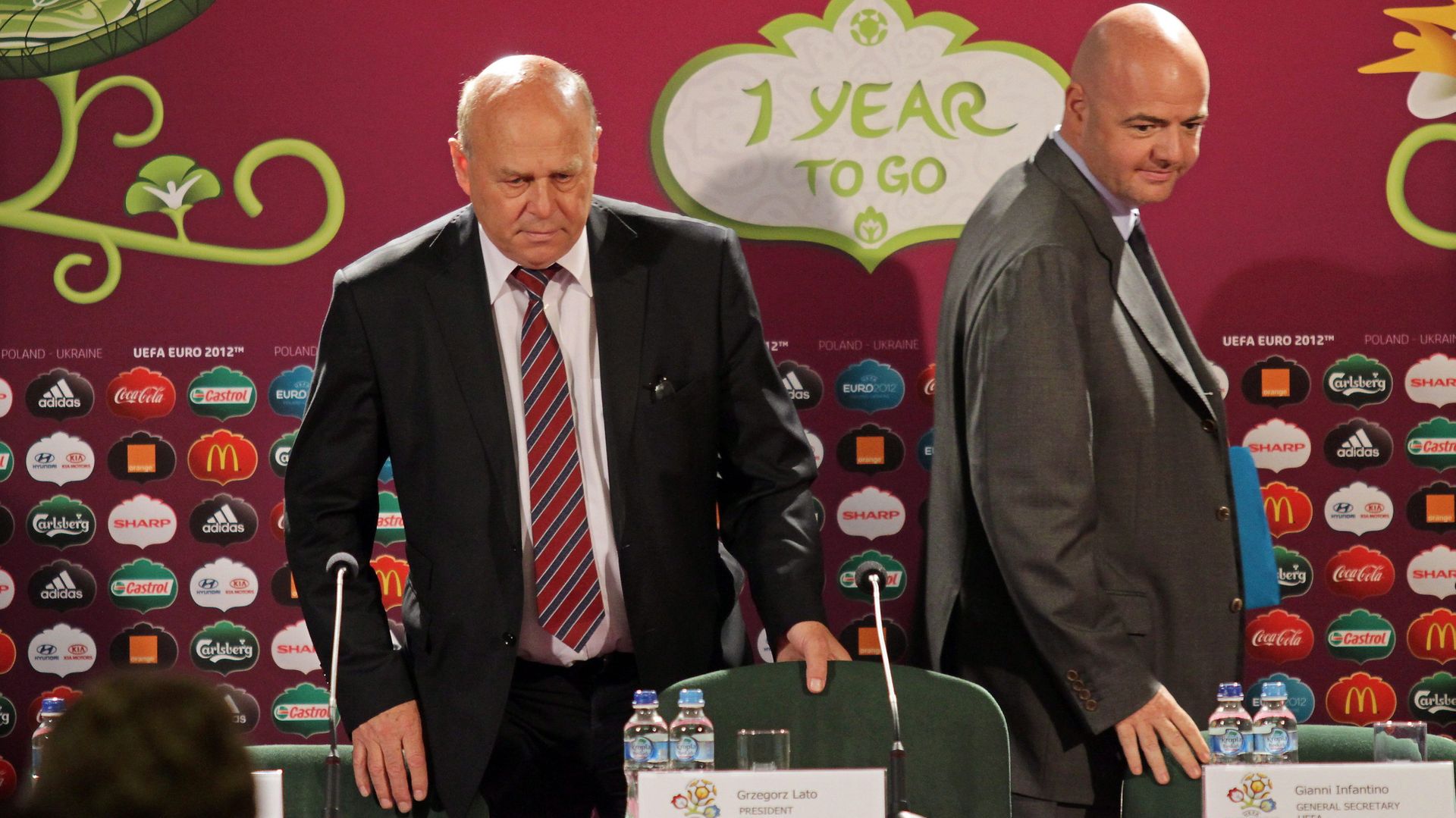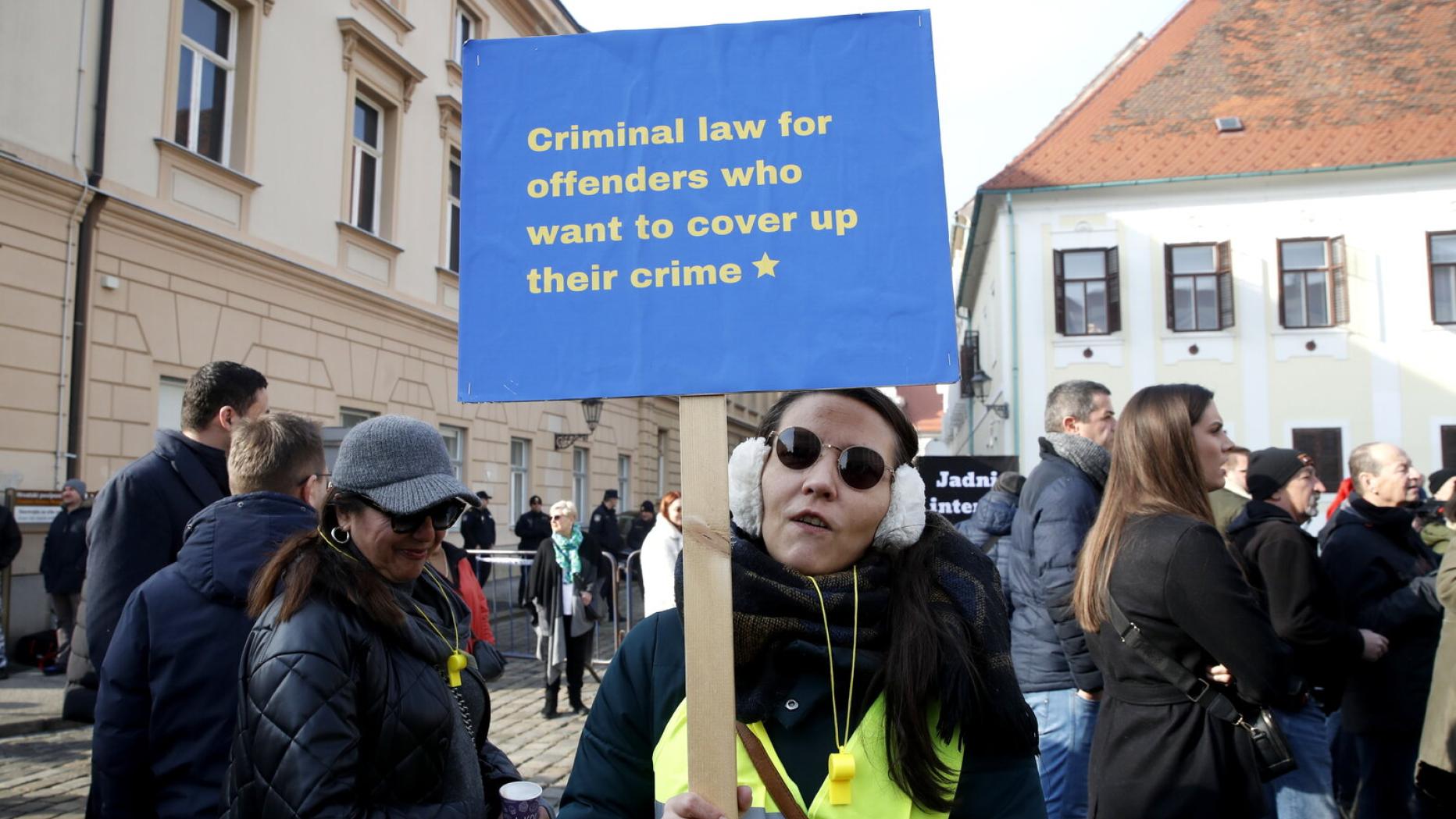Corruption in Slovenia is examined on this page.
Extent
Transparency International's 2021 Global Corruption Barometer surveyed Slovenians and asked if most or all of the people in specific public, business and NGO institutions were corrupt. The institution pointed out by the largest percentage of survey respondents (39%) as corrupt was the prime minister, followed by national government officials (28% of survey respondents), members of parliament (24%), and bankers (24%). In the same survey, 4% of Slovenians reported that they had paid a bribe to a public servant in the last 12 months, and 51% thought that corruption had increased during that period.
In January 2013, thousands of Slovenians joined the Commission for the Prevention of Corruption and took to the streets, demanding the resignation of Prime Minister Janez Janša and opposition leader Zoran Janković because both had been accused of failing to properly declare their personal assets. The Commission accused both of “systemic, gross and repeated violations of the anti-corruption legislation”. The month after the protest, Janša was ousted in a no-confidence vote. In June 2013, Janša was convicted of corruption in connection with a 2006 defence contract and given a two-year prison sentence. The conviction was unanimously overturned by the Constitutional Court on 23 April 2015. However, Zoran Janković, continued his mandate as mayor of Ljubljana.
Slovenia has been stagnating in the field of corruption for at least 5 years. Major systemic measures are needed to lower the level of corruption in Slovenia.
Areas
Public
On Transparency International's 2024 Corruption Perceptions Index, Slovenia scored 60 on a scale from 0 ("highly corrupt") to 100 ("very clean"). When ranked by score, Slovenia ranked 36th among the 180 countries in the Index, where the country ranked first is perceived to have the most honest public sector. For comparison with regional scores, the highest score among Western European and European Union countries was 90, the average score was 64 and the lowest score was 41. For comparison with worldwide scores, the best score was 90 (ranked 1), the average score was 43, and the worst score was 8 (ranked 180).
Business
According to Transparency International's Global Corruption Barometer 2013, the private sector is scored 3.3 on a 5-point scale (1 being 'not at all corrupt' and 5 'extremely corrupt').
According to the World Economic Forum's Global Competitiveness Report 2013-2014, corruption ranks among the top-five most problematic factors for doing business in Slovenia, after access to financing, inefficient government bureaucracy, restrictive labour regulations and tax rates. However, surveyed executives report that public funds are rarely diverted due to corruption, and the ethical behaviour of companies is considered relatively high.
Police
Notes
See also
- International Anti-Corruption Academy
- Group of States Against Corruption
- International Anti-Corruption Day
- ISO 37001 Anti-bribery management systems
- United Nations Convention against Corruption
- OECD Anti-Bribery Convention
- Transparency International
References
External links
- Slovenia Corruption Profile from the Business Anti-Corruption Portal




